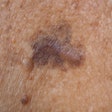
Black women who face barriers to healthcare are more likely to get follow-up mammograms if patient navigators are available to assist them, according to a study published on September 24 in the journal Cancer.
The trial, the Patient Navigation in Medically Underserved Areas (PNMUA) study, randomly assigned patients to one of two groups: One group received a patient navigation support intervention and the other group served as a control. Patient navigators are individuals who provide guidance to patients to help overcome various barriers to care.
The research team, led by Sage Kim, PhD, of the University of Illinois at Chicago (UIC) School of Public Health and the UI Cancer Center, found patient navigators may reduce breast cancer disparities, but the group also noted that minority women's views on gender and race/ethnicity may affect how they seek help and support for their health needs.
"Our findings suggest that black women and women living in poverty, who need patient navigation interventions the most, are in fact less likely to report their barriers to optimal care," Kim said. "Perhaps women who do not trust the healthcare system may not feel comfortable telling care providers about their barriers that could potentially affect the ways in which they engage in healthcare."
Barriers to screening
The study included 3,754 women who received the patient navigation intervention. The likelihood of obtaining a follow-up screening mammogram was compared between women who identified one or more barriers and those who did not.
Only a small proportion of women (14%) identified one or more barriers, which led to additional interactions with navigators who helped overcome barriers. Comparatively, women who reported barriers were more likely to have additional contact with navigators and obtain a subsequent screening mammogram.
The ability to recognize barriers may determine women's likelihood of reporting barriers and consequently receiving additional support, according to the study authors. For example, medical distrust due to past and current experiences of blacks, as well as social norms and images of women, may influence how black women deal with their own needs and interact with healthcare providers.
It is important to understand how minority women and women living in difficult life circumstances interact with patient navigators and improve services accordingly, according to Kim.
"If we don't, providers may have a false sense of security," she noted in a UIC statement. "They might incorrectly assume that women who do not report barriers are not in need of patient navigator support and are all doing well."
Patient navigators need more training and to pay close attention to how interventions are implemented so that women are better able to seek out needed assistance.
"It is not enough to implement a well-tested intervention because it might not be equally effective for all groups across race/ethnicity and economic conditions," Kim stated.



















